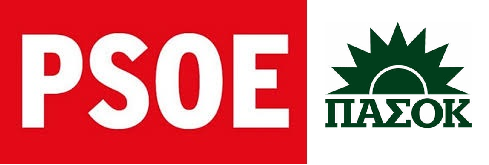History may repeat itself but never as quickly or as mindlessly as it does within Europe’s social democratic family. Spain’s socialists jettisoned Pedro Sánchez to allow Mariano Rajoy to form a government as if in a bid to replicate the disappearing act of their Greek counterparts, the once formidable PASOK.
In 2011, after having backed the calamitous troika Greek ‘programme’, PASOK’s socialists ousted their leader, George Papandreou, to facilitate the formation of an essentially conservative government. Under pressure from Greece’s oligarchy, the socialists forgot they once were the conservatives’ sworn enemies and thus became their discredited accomplices – the tail that an unpopular, regressive government wagged with glee. Six months later, in the June 2012 elections, the socialists slid from the 35% to 45% electoral range they had been used to since 1981… to a depressing 5%.
Observing PSOE’s recent travails conjures up more than a déjà vu. Just as in Greece in 2011, when the ousted socialist leader cited oligarchic interests as the forces that pushed him out, so too did Sánchez cite pressures from corporate circles, naming former Telefónica CEO César Alierta and undisclosed financial groups.
In Papandreou’s case the oligarchs decided he was a spent force who could no longer push through parliament the bills emailed to Athens by the troika. They needed these bills to be implemented because they were the prerequisites for loan tranches that the Greek oligarchy needed to extend-and-pretend its bankruptcy. In Sánchez’s case, the Spanish oligarchy judged that, to continue to benefit from the easy money policy of the European Central Bank, the lax regulations of Spain’s troubled banks and the constant redistribution from Spain’s weaker citizens to themselves, Rajoy was their best runner. (What’s more, Sánchez was threatening to trip up Rajoy with a Portugal-style coalition of the Left.)
Another similarity between the Spanish and Greek socialists’ suicidal thinking is their argument that they had a national duty to do whatever it takes, as ‘responsible’ politicians, to stop the country’s drift under caretaker governments. Just as PASOK did in 2011, PSOE is today arguing that their country can’t afford another election and further delays in the formation of a ‘proper’ government that can take decisive action over the budget and troika-inspired ‘reforms’ (even if it ends up being one their citizens didn’t voted for). Really?
Since the crisis erupted, the only periods in Greece when the recession eased were those with governments either too weak or – as in the case of the first SYRIZA government in which I served as finance minister – too unwilling to comply with the troika’s demands. Similarly, in other Eurozone member states, political paralysis has proved to be highly convenient! During the euro crisis’ worst days, Belgium had the strongest growth in Europe because – rather than in spite – of repeated failures to form a ‘proper’ government: the lack of a parliamentary majority meant no government could implement the self-defeating austerity that had slashed incomes in member-states featuring ‘proper’ governments. Spain’s economy, too, has paradoxically benefited from not having had, since last December, a clear parliamentary majority for the contractionary policies demanded by Brussels.
A strong government, backed by a healthy parliamentary majority, is a good thing if it has either the freedom to implement sensible economic and social policies or is committed to practising what we in the transnational movement DiEM25 refer to as Constructive Disobedience. That is, saying ‘No!’ to policies detrimental to recovery and social justice (the ‘disobedience’ part) while tabling rational, common sense policies whose adoption across Europe would bring widespread advantages to Europeans and to the EU’s struggle for survival (the ‘constructive’ part).
It is highly doubtful that Sánchez before he was ejected from his post, or Papandreou in Greece five years ago, would have practised Constructive Disobedience. However, the fact that there was a chance that they might have, and the certainty that their conservative opponents would not, was the reason the unnerved oligarchy had them removed. Furthermore, the curious fact that their own parties participated in their dethronement was the reason PASOK bit the dust and PSOE is heading in precisely the same direction.
Originally published in eldiario.es.
Do you want to be informed of DiEM25's actions? Sign up here















